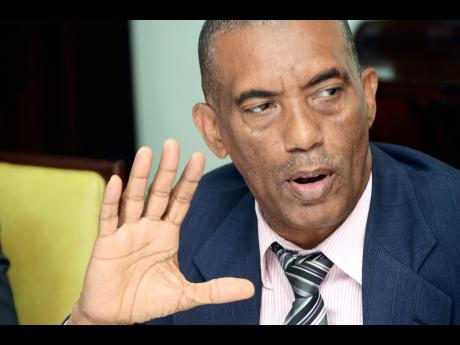Clergyman blasts those quick to pardon
As the debate rages over whether victims should forgive those who have wronged them, at least one local clergyman has charged that those quick to forgive are showing moral weakness, even as others argue that forgiveness is necessary for persons to move on with their lives.
The debate was sparked by the decision of survivors and family members of the nine persons killed in a church in Charleston in the United States to forgive the accused killer. More fuel was poured on the fire last week as news came that some local rape victims have decided to forgive their attackers.
President of the Jamaica Theological Seminary, Dr Garnett Roper, believes the concept of forgiveness is misunder-stood, having considered the state-ments made by relatives of the persons killed last month at the historic Emanuel African Methodist Episcopal Church in South Carolina.
According to Roper, forgiveness should never be used as a reason to excuse or deny the wrong that has been done to an individual.
"Forgiveness still includes an obligation that I have to safeguard the interest of my neighbour. So at the same time that I don't unduly punish or spite the person that has hurt me, I hold that person accountable," said Roper.
"A rape is such a deeply personal injurious crime. Women who have been raped years later still feel the man raping them. How do you cleanse yourself if you deny yourself the opportunity to face your victimiser and have him have his day in court? What is being spoken about as forgiveness is a moral weakness; it's a form of cowardice, being dressed up in modern language," added Roper.
However, child psychiatrist Dr Yvonne Bailey-Davidson and Dr Grace Kelly, who specialises in guidance education and counselling, believe forgiveness is more for the benefit of the victim rather than the perpetrator.
"To put it in context, unforgiveness is like drinking poison and expecting the other person to die. Forgiveness cleanses your system," argued Kelly.
"It helps the victims because they are able to put it aside and go on with their lives, but as long as they are angry and upset and fearful and afraid, then the situation is in control of them," said Bailey-Davidson.

